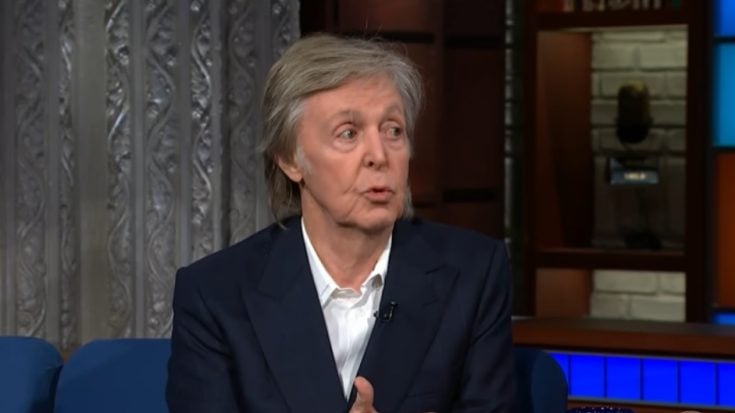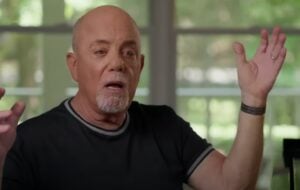Why Did Paul McCartney Sue The Beatles In 1970?

Paul McCartney on The Late Show with Stephen Colbert / Youtube
In a pivotal moment on December 31, 1970, Paul McCartney took a bold step by suing his fellow bandmates John Lennon, George Harrison, and Ringo Starr in the High Court of Justice in London, England. This legal action marked the beginning of the end for The Beatles as a band but, in the long run, played a crucial role in preserving the group’s control over their music catalog, ownership of Apple Corps Limited, and more, even to the present day.
Reflecting on those tumultuous times, McCartney shared in 2020,
“I was thought to be the guy who broke The Beatles up and the bastard who sued his mates. And, believe me, I bought into that. It was so prevalent that for years I almost blamed myself.”
The Troubles Begin with Allen Klein
The seeds of discord were sown when The Beatles enlisted New York City accountant Allen Klein as their manager in 1968, shortly after forming Apple Corps. While Lennon, Harrison, and Starr favored working with Klein, McCartney, skeptical of Klein’s previous dealings with the Rolling Stones, preferred his father-in-law Lee Eastman to represent him and the band.
Mick Jagger, having experienced issues with Klein, warned McCartney about working with him, stating in a note “Don’t go near him.” McCartney’s concerns deepened as Klein’s management style clashed with his vision, leading to disagreements over the production of their final album, Let It Be.
View this post on Instagram
McCartney’s Solo Path
As internal strife heightened, McCartney, facing resistance from the band and Klein over the release of his solo debut, announced on April 10, 1970, that he was no longer working with The Beatles. Unable to directly sue Klein, McCartney took legal action through the band, driven by the conviction,
“There was no way I was going to work that hard for all my life and see it all vanish in a puff of smoke.”
The Legal Battle Unfolds
In 1971, McCartney succeeded in the lawsuit to dissolve The Beatles, but the band’s finances remained in receivership until all four members could agree on the terms of their dissolution. Despite the legal victory, Lennon, Harrison, and Starr continued working with Klein temporarily, later refusing to renew his management contract in 1973.
Reflecting on the reasons behind parting ways with Klein, Lennon cryptically mentioned:
“Let’s say possibly Paul’s suspicions were right, and the timing was right.” Klein responded with a $19 million lawsuit against The Beatles and Apple Corps.
McCartney’s Defense of The Beatles Legacy
The prolonged legal disputes concluded on December 29, 1974, officially marking the dissolution of The Beatles.
“The only way for me to save The Beatles and Apple—and to release ‘Get Back’ by [director] Peter Jackson which allowed us to release ‘Anthology’ and all these great remasters of all the great Beatles records—was to sue the band,” emphasized McCartney.
Today, McCartney and Starr, alongside the estates of Lennon and Harrison, continue to own Apple Corps. This ownership facilitated significant projects, including The Beatles: Rock Band video game, the remastering of The Beatles’ catalog, and the production of Peter Jackson’s The Beatles: Get Back documentary in 2021. The legal battles of the past, though tumultuous, played a crucial role in preserving The Beatles’ enduring legacy.












